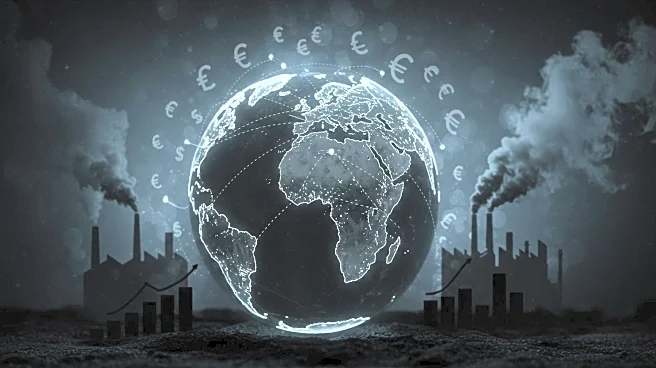What's Happening?
President Trump has announced a 39% tariff on Swiss exports, significantly impacting Switzerland's economy. The United States is a crucial market for Swiss products, accounting for 18.6% of all Swiss exports. The tariffs threaten to severely reduce sales to the U.S., prompting Switzerland's industry lobbying group to warn of potential economic devastation. In response, Swiss business minister Guy Parmelin has introduced a furlough program to mitigate mass layoffs. The move has triggered a major identity crisis in Switzerland, a nation that has historically thrived on exports while maintaining political neutrality and isolation.
Why It's Important?
The tariffs imposed by President Trump could have profound implications for Switzerland's economy, which has long benefited from its export-driven model. The potential reduction in sales to the U.S. could lead to significant economic contraction, affecting Swiss industries and employment. This development challenges Switzerland's traditional stance of neutrality and economic independence, forcing the country to reconsider its global trade strategies. The situation also highlights the broader geopolitical tensions and economic strategies employed by the U.S., which could influence international trade relations and economic policies.
What's Next?
Switzerland faces limited options in responding to the tariffs, having already committed to purchasing F-35 fighter jets and eliminated tariffs on industrial products. The Swiss government may need to explore new economic treaties with the European Union, despite resistance from the Swiss far right. The upcoming vote on these treaties will be a critical test of Switzerland's future trade policies and its relationship with the EU. Additionally, the Swiss government may seek diplomatic solutions to address the trade deficit with the U.S. and negotiate more favorable terms.
Beyond the Headlines
The tariffs have shattered Switzerland's long-standing sense of exceptionalism and isolation, forcing the country to confront its vulnerabilities in the global economic landscape. The psychological impact of losing its advantageous trade position could lead to shifts in national identity and policy. The situation also underscores the complexities of international trade and the challenges faced by countries that rely heavily on exports while maintaining political neutrality.








